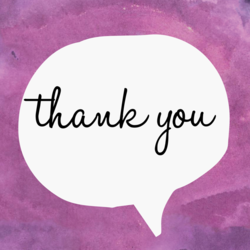Part of my work as a consultant involves teaching a class for educators about communication and culture. On the first evening we meet, I ask the participants to make a list of the people who taught them how to be a human being. Recently one of them, a bright young teacher and mother of three, called me over and said, "What if I can't put my parents on this list? I was a latchkey kid." In response, I asked, "Who did show up for you?" She smiled and began writing her list of names.
This is a time of year when I reflect on the fact that, for many people, Father's Day and Mother's Day are national holidays that don't fit them and possibly bring up pain. Some may be longing for the mother or father they lost or never had. Some may have always wanted to be a parent but couldn't. Estranged spouses may mourn the marriage that didn't work.
When Anna Jarvis began campaigning for a holiday to honor mothers, soon after her own mother died in 1905, our nation had a different view of families and mothers. Publicly we held to the idea of the nuclear family. A few years later, in 1910, Sonora Smart Dodd initiated Father's Day as a tribute to her father, a single man who had raised six children. The holiday began because Dodd's family didn't fit the cultural norm of those times -- no mother was present to celebrate on Mother's Day.
As a public school teacher years ago, I tried to be sensitive to situations that potentially could make some of my students feel "other." Because Mother's Day occurred during the school year, I saw the pain on some children's faces when that holiday was celebrated and they didn't have a mother at home. What I learned was that all students could honor the adults who had shown up for them in some way, even if they weren't the child's parents.
By finding ways to thank those people and acknowledge their gifts, the students began to understand the importance of gratitude. Gratitude is a lifelong practice that I knew would support them in their growth as human beings. By opening up the definition and moving beyond biology, we were reframing their stories. Now, when I teach the university class on culture and communication, I explain that in many indigenous cultures, young people will speak about their uncles or aunts, but often those individuals are not biological relatives. Rather, they are elders who have contributed in important ways to the young person's life. It is common for people in such cultures to claim many elders who have shown the way, expressed kindness, and been part of the fabric of the community in which the children have been raised.
One of the hardest things in life is contending with the cards we're dealt when they aren't the cards we wanted. Fathers may not be present for many reasons: divorce, death, fractured relationships. In some cases, a father may never have been in the picture at all. Consequently, Father's Day can sometimes be a painful reminder that seems to offer no appropriate way of celebrating. Even so, it could present an opportunity. For example, I once knew of two brothers who found Father's Day to be particularly painful because their father was choosing not to be present in their lives. Wanting to celebrate anyway, the young men decided to exchange cards and gifts between themselves to honor the ways they appreciated each other. By doing so, they broadened their own definition of the holiday.
When my father was alive, although he and I had a deep and abiding love, we had the normal amount of static in our relationship. Apart from traditional celebratory cards and gifts, we struggled in our communication for several years. Now that he has slipped out of his costume, however, my awareness of what he contributed while he was alive continues to expand and grow.This Father's Day, I will be honoring my father by writing him a thank-you letter. Expressing my gratitude will strengthen my heart muscle.
If this Father's Day is not a day on which you can celebrate a man with whom you share biology or lineage, consider calling, acknowledging, or visiting with a man who has been supportive of you or has otherwise contributed to your life in a valuable way. Let this Father's Day be a day when we express our gratitude to those who showed up for us and taught us something about what it means to be a human being.
